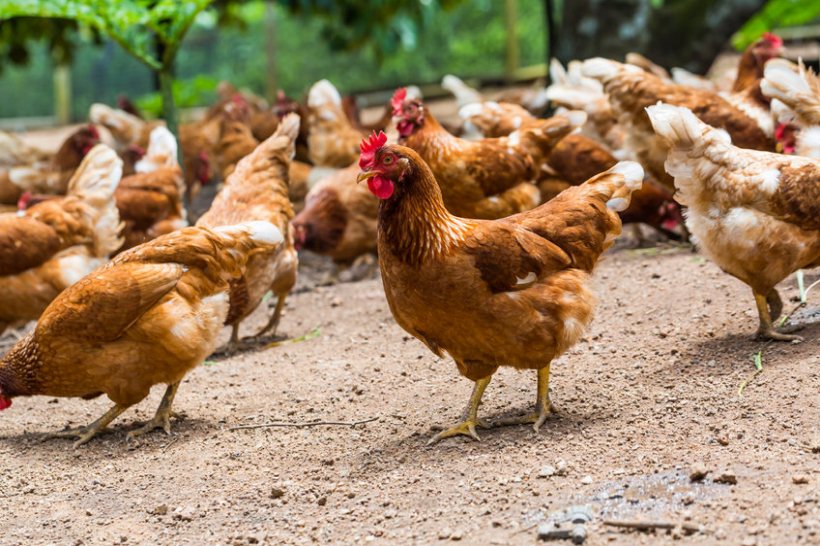Two new bird flu outbreaks in Suffolk, Defra confirms

Two new cases of highly-pathogenic avian influenza have been recorded in Suffolk, the government has said as the UK continues to see its worst ever bird flu outbreak.
Avian influenza of the H5N1 strain was confirmed in birds at a premises near Market Weston on Saturday (12 March).
The disease was also recorded in commercial poultry at a farm near Redgrave a day earlier.
A 3km Protection Zone and 10km Surveillance Zones have been put in place around both premises, and all birds will be humanely culled, Defra said.
England has recorded 85 cases of avian influenza since October 2021, which marked the start of the bird flu season.
UK Chief Veterinary Officer, Christine Middlemiss said that the outbreak had not gone away and implementing scrupulous biosecurity remained 'absolutely critical'.
"We have taken swift action to limit the spread of the disease including introducing housing measures," she explained.
"However we are still seeing a number of bird flu cases both on commercial farms and in backyard birds right across the country.
"Many poultry keepers have excellent biosecurity standards but the number of cases we are seeing suggests that not enough is being done to keep bird flu out.
"Whether you keep just a few birds or thousands you must take action now to protect your birds from this highly infectious disease."
Earlier this week, the Scottish government had confirmed an outbreak of highly pathogenic avian influenza in Aberdeenshire.
Prior to this, Scotland's last outbreak was recorded several weeks ago, on 22 January, at a site near Inverurie, Aberdeenshire.
Scotland has recorded seven outbreaks of highly-pathogenic bird flu since the start of the winter season.
Scotland’s Chief Veterinary Officer, Sheila Voas said: “Keepers who are concerned about the health or welfare of their flock should seek veterinary advice immediately.
"Your private vet, or your local Animal and Plant Health Agency office, will also be able to provide practical advice on keeping your birds safe from infection.
“Any dead wild swans, geese, ducks or gulls, falcons or other birds of prey, or five or more dead wild birds of other species in the same location, should be reported to the Defra dead wild bird helpline.”








